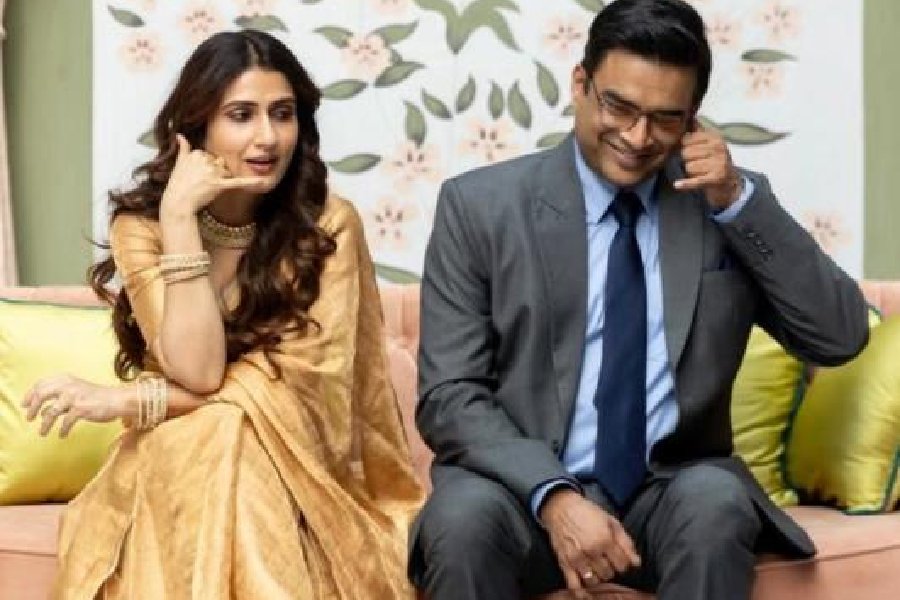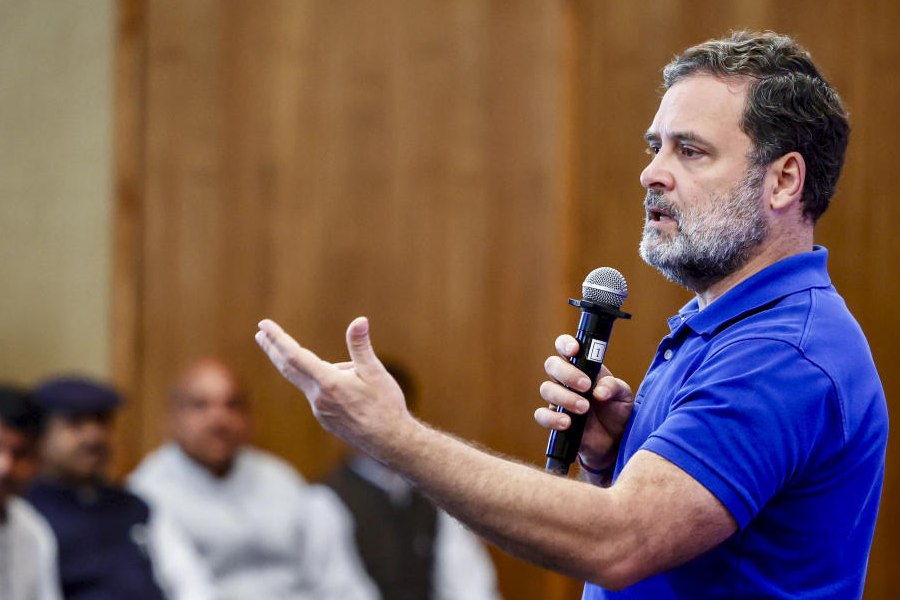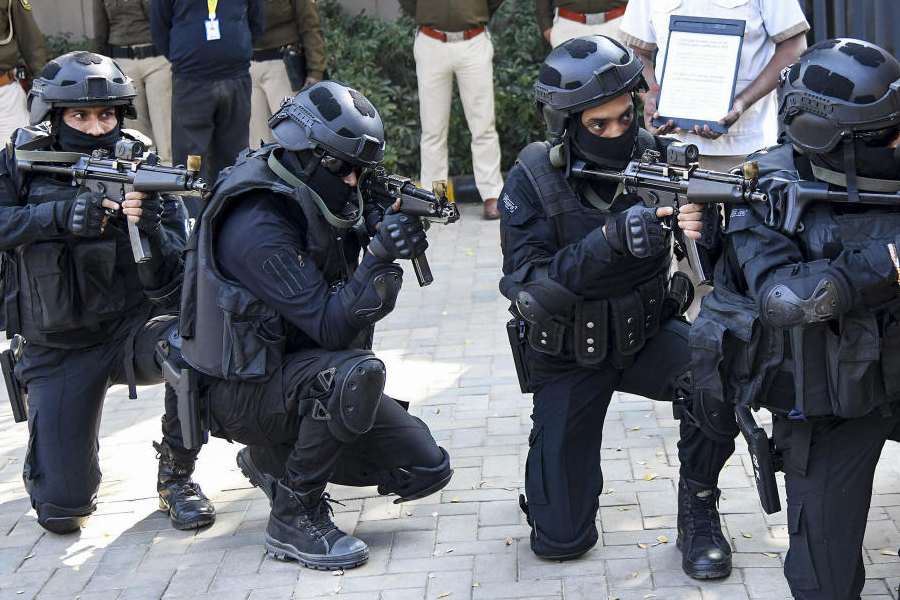Every stereotype involving Bengalis that you have ever heard, seen and read is heaped in and then hammered into Aap Jaisa Koi. A potentially sweet film with a premise that invariably should have left a lingering aftertaste is sacrificed at the altar of poor research and poorer storytelling. What emerges is a hackneyed, almost hastily put together film that wants to be everything — entertaining, message-y, inspirational, thought-provoking — but ends up being nothing. Except for a “kick in your b***s, bro” (that is not me being obscene, but a recurring dialogue in this film).
Aap Jaisa Koi, streaming on Netflix, hinges on the idea of a 42-year-old virgin — this one beats Hollywood’s The 40-Year-Old Virgin by 730 days — meeting a woman far beyond his dreams (and reach). The 10-year age gap between Shrirenu Tripathi (R. Madhavan, who, in reality, is 55) and Madhu Bose (Fatima Sana Shaikh, 32 in the film, 33 in life) doesn’t seem to matter to the two of them. Despite being from different backgrounds, their beats — and not just of the piano that she plays or the sitar that he strums — click in an instant. She is a feisty Bengali woman who teaches French and lives in a joint family in North Calcutta. He still shares a modest apartment with his recently single friend (Namit Das rescues what, on paper, must have been a very annoying character) and teaches Sanskrit in a school in Jamshedpur. Shri’s only family comprises his boorish older brother (Manish Chaudhari, forever stereotyped) and neglected sister-in-law (Ayesha Raza Mishra, who helps lift the mediocre film).
While Madhu is emancipated, forward-looking and is unflinching about her past — she dumped her last boyfriend for asking her if she was a virgin — Shri is, well, a virgin. So much so that he signs on for a sex-chatting app called ‘Aap Jaisa Koi’, and finds his life changing. It changes further when he meets Madhu.
The two meet at Coffee House, drive around in yellow taxis, walk in and out of heritage buildings and watch retrospectives in single-screen halls. While that contributes richly to the visual imagery, the film’s idea of the city seems to be the result of a “Kolkata images” search on ChatGPT or is flicked off those hand-painted T-shirts depicting the city’s motifs that pop up on Instagram Reels. That is quite a surprise because at least one of the creative minds behind this Dharmatic film is a Bengali. And yes, the Bose family also goes into a tizzy as soon as they sniff ilish maachh. This, and many, many other stereotypes abound.
All of this would have still been tolerable if Aap Jaisa Koi at least had a compelling, credible story to tell. But this one turns out to be a mish-mash of Dharma’s own Rocky Aur Rani Kii Prem Kahaani and Mrs, starring Sanya Malhotra, that released earlier this year. Both were watchable films — Rocky Aur Rani... was entertaining, Mrs was eye-opening — but Aap Jaisa Koi, starting off strong, flounders in most departments.
Bengalis are presented as woke because the women drink and discuss politics. All of this has been touched upon before, with Piku managing to present it through a lens that didn’t feel judgmental or intrusive. Most importantly, it was done in a way that didn’t feel like it wanted to make a point. Also, the Bengali woman stereotype of kohl-lined eyes, oxidised jewellery and sleeveless blouses with wispy hair and cotton saris just has to go away now.
Aap Jaisa Koi makes a few pertinent points about female agency, patriarchy, women’s desires and the double standards that prevail even among the upper echelons of Indian society, but none of it works in the face of Vivek Soni’s listless direction and the unidimensional writing by Radhika Anand and Jehan Handa.
The lack of chemistry between Madhavan and Fatima also doesn’t make you root for the couple when they hit a roadblock. While Shri being a teacher of Sanskrit is given a backdrop in the form of a few scenes, the only thing that tells us that Madhu teaches French is her frequent use of ‘Epoustouflant’ — that’s ‘breathtaking’ for you — to describe Shri.
The resolution of the central conflict between the couple — courtesy an abrupt change of heart and sudden shift of mindset — does immense disservice to the watchable parts of the film because of how contrived it feels.
Aap Jaisa Koi, however, benefits from some lived-in performances, with Anubha Fatehpuria and Beena Banerjee playing their parts well, as do Tolly actors Saheb Chatterjee and Ananya Chatterjee.
In the end, Aap Jaisa Koi feels like a case of what could have been — an unconventional love story, an age-gap romance well told and even a coming-of-age drama. It is none of these. What it does end up as is far from epoustouflant.










